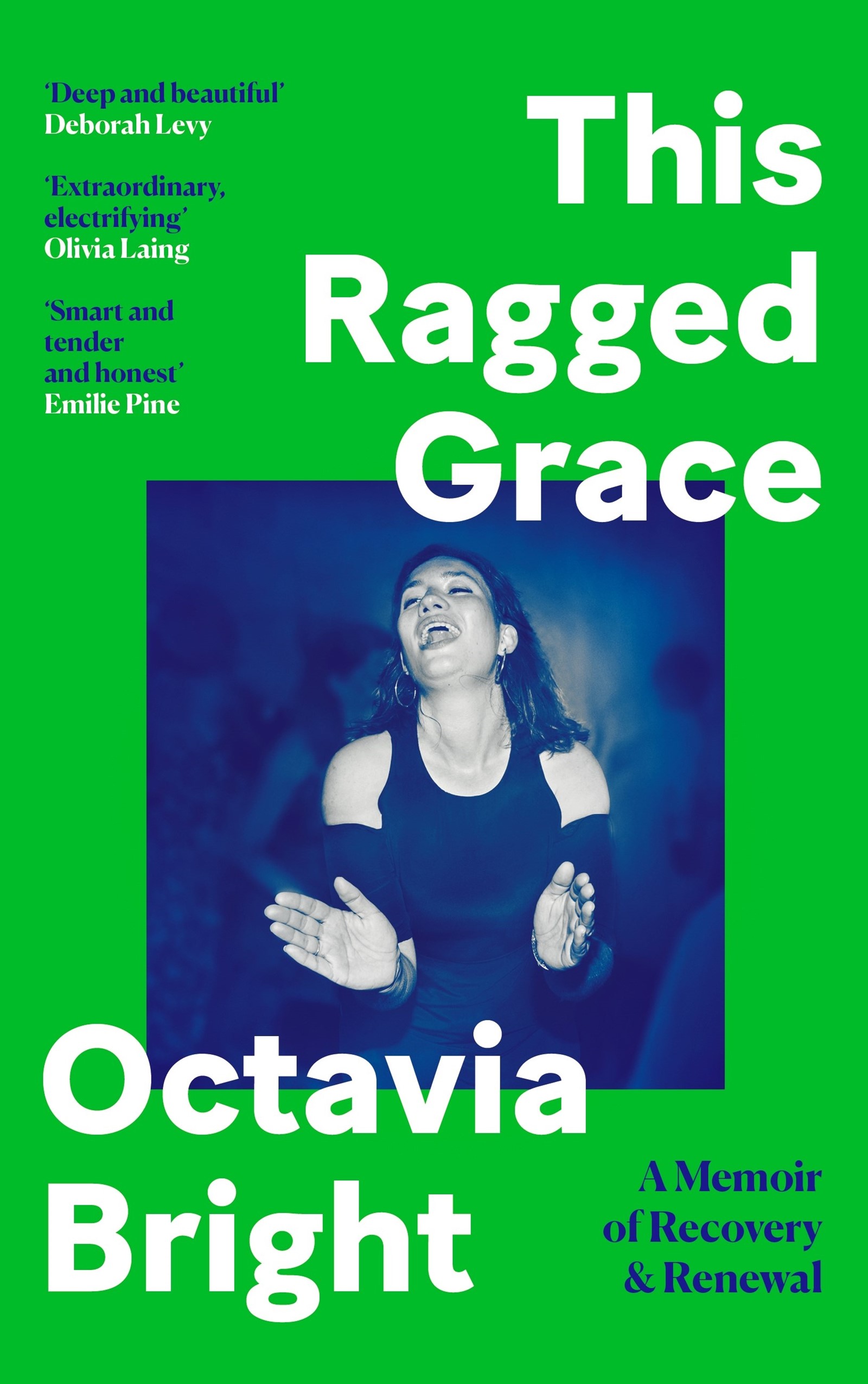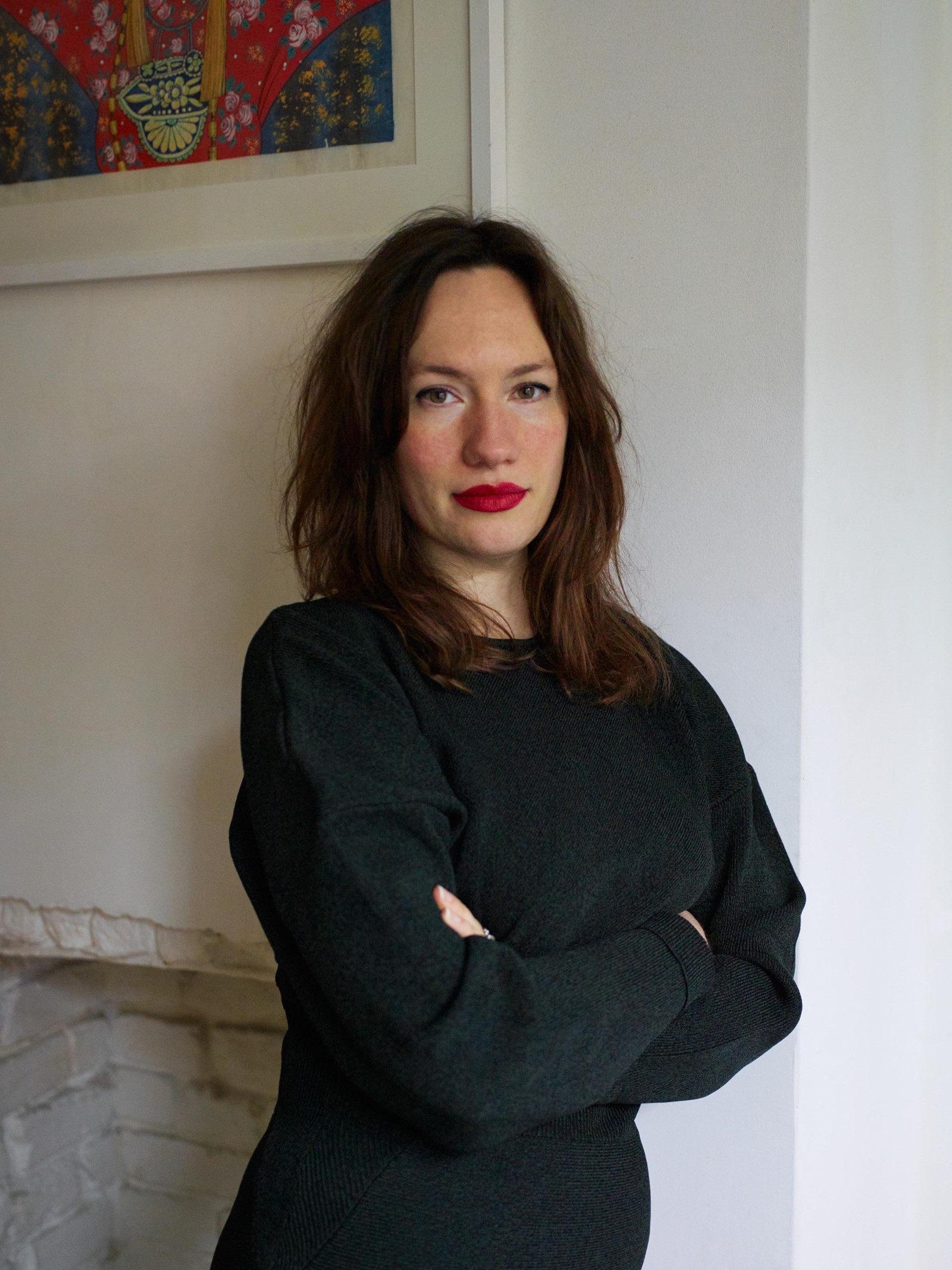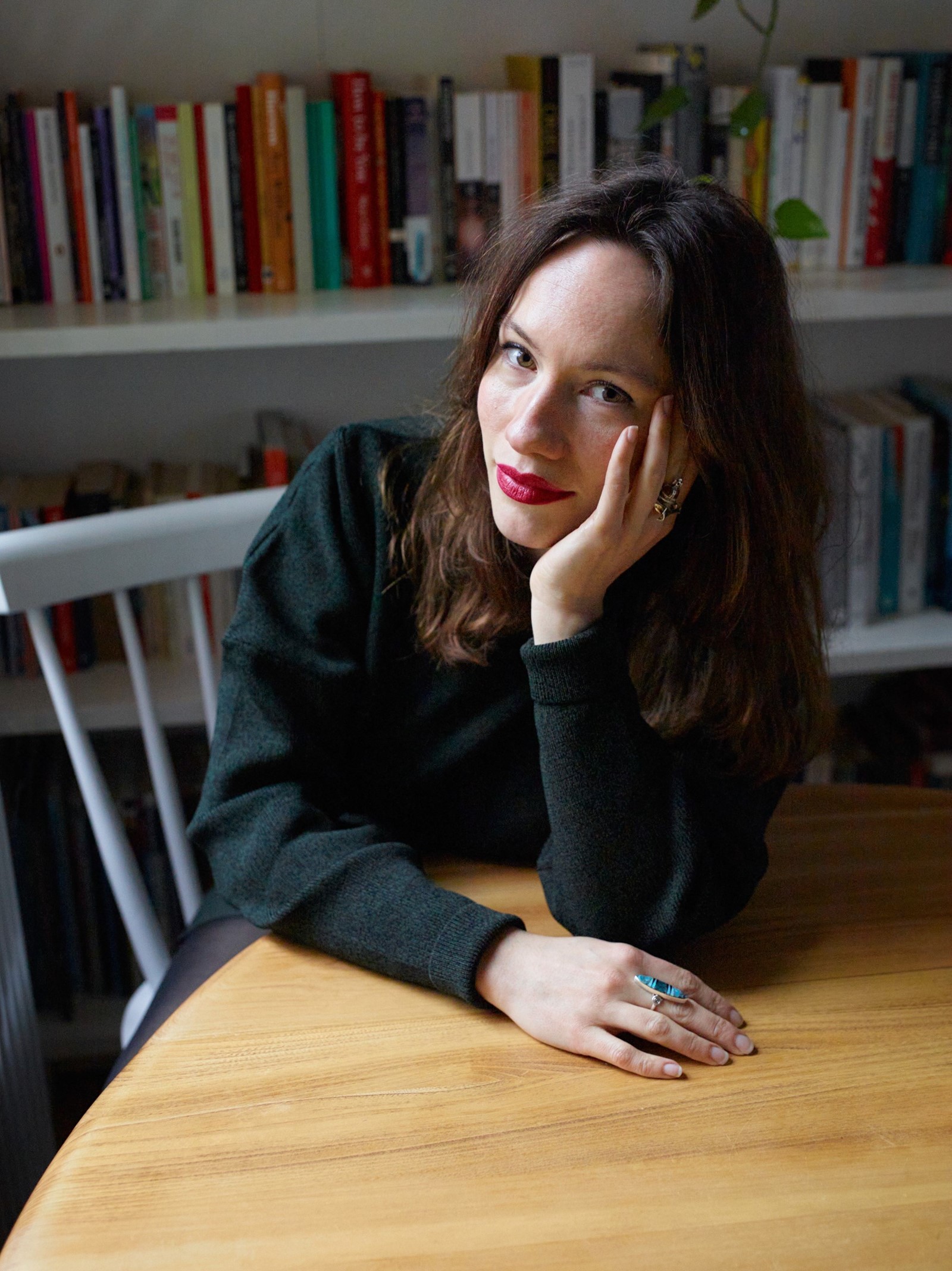“I walked so hard and so fast in the winter of 2013 that I wore right through a pair of red Doc Martens.” This frenzied kineticism opens Octavia Bright’s memoir This Ragged Grace: A Memoir of Recovery and Renewal. An emotive story of convalescence from alcohol addiction starting when she is a doctoral student, it courses across continents and climates like a picaresque, each location offering up new affective terrain and possibilities for living. In Stromboli, the author comes across a grey-haired philosopher married to the postman. In Margate, she discovers the highs of cold water, but there, loneliness is its own dark ocean. As well as beyond and outwards, Bright heeds the words of philosopher Simone Weil that “if we go down into ourselves, we find that we possess exactly what we desire.” She learns to meditate while walking.
A writer, broadcaster and co-host of the Literary Friction podcast, Bright’s first book – which takes place across seven years – contains deep strata of lived experience as much as it stages her coming-of-age. Ragged Grace plays with form and genre in its exposition of recovery – layering academic ideas and fictional tropes over more straightforward non-fictional narratives. Bright also tells the story of her father’s descent into Alzheimer’s, her care for him clashing with the simultaneous flush of a new love. “We tend to think of grace as to do with smoothness, elegance or the divine, but I’m more interested in the ragged kind,” she writes. “Like perfection or completion, smoothness is a false ideal: friction is where you meet reality.”
At a rooftop bar in Peckham, Octavia Bright speaks about spirals, freedom and the power of volcanoes.

Kitty Grady: Your epigraph by Louise Bourgeois describes a spiral. Why did you open with this metaphor?
Octavia Bright: It was strange. I found the epigraph after I’d written a few chapters. I felt like there were spirals everywhere, but I hadn’t realised it came from Bourgeois. When I was thinking about how to write about addiction, [I realised] it wasn’t a linear process. It was a spiral. It would unwind and then wind back in again when things seemed fine, and then unwind further. It’s also what recovery feels like, just in the other direction. There’s also a parallel in Alzheimer’s – this unspooling of a person’s identity.
KG: The narrative of the book starts seven months after your last drink. Why did you want to begin here, rather than in the throes of addiction?
OB: I realised recovery is more interesting than addiction. That’s not to say that I haven’t really enjoyed reading about addiction, but recovery always comes at the end, like the wedding in a romcom. But as we all know, that’s the fantasy and the really hard stuff follows. The experience of being trapped in an addictive relationship to any substance is ultimately very monotonous, from a psychological point of view, even if you’re wearing cool clothes and surrounded by avant-garde people. When I first got sober I was susceptible to glamorising what I was leaving behind, and was anxious that recovery couldn’t be interesting and exciting too. I was hungry for stories about recovery, but I couldn’t really find them.
KG: The writing of your thesis – on hysteria, Spanish cinema and Louise Bourgeois – is included in the book, and feeds its way in. How did you see its relation to this project?
OB: I was initially planning a book closely mapped onto my thesis, but I was getting stuck in these intellectual spirals. My agent gently asked if I’d return to my more personal writing and I wrote what became the first chapter. I had no idea all this work about hysteria from my thesis would find its way in. When I went walking, I had this profound moment of: ‘I am the wandering womb’. People who do PhDs, especially in the arts – when you dig down, they usually have a deep personal relationship with it, even if they don’t know it to begin with. I’m a big believer in the drive of the unconscious. Your job as a sentient being is to figure it out, rather than repress it. My unconscious mind was doing a lot of work in my thesis, and this book is part two, I guess.
“My wild, addict self – she was fun to write. That’s the difficult thing with writing about dysfunction – those moments of extreme behaviour are often electrifying, both as a reader and a writer” – Octavia Bright
KG: Were you at all resistant to writing in a confessional mode?
OB: Yeah, I had hesitations. But I would call myself a recovering academic as well as a recovering alcoholic. And in academic writing the ‘I’ is not present. You are not there, which is bullshit, because you’re always there in anything you write. The longer I interviewed writers, the more I realised the memoir form has such potential. It’s ideal if you’re a writer who doesn't want to be constrained because you can take it anywhere.
KG: There are certain moments that are very exposing, such as the drunken motorbike accident. Did you feel vulnerable writing those scenes?
OB: I didn’t because it feels like they happened to someone else. When you make a big change like getting sober there is a disruption to a continuous sense of identity. I found it more exposing to write the later chapters because they are so much more who I am now, even if there’s nothing that extreme in them. My wild, addict self – she was fun to write. That’s the difficult thing with writing about dysfunction – those moments of extreme behaviour are often electrifying, both as a reader and a writer.
KG: I was reading Maggie Nelson’s recent book On Freedom before this, and your story seems to echo her description of the liberation of the addict versus the freedom of recovery.
OB: When you are addicted to something you’re in bondage to your substance. It feels like freedom because it is a break from your psyche. Recovery is the difference between the shortcut and the long way. You have to work a lot harder. Now I can get high on a dancefloor and it’s amazing and there’s no comedown. There’s nothing lurking in the shadows, which to me, feels like real freedom.

KG: The other strand of this book is about your father’s deterioration and death with Alzheimer’s. Why did it feel important to hook this experience onto that of your recovery?
OB: I always knew both stories would be in there. We crossed over. One of us was heading towards recovery and the other person was heading away from any possibility of recovery. You may be lucky and have a period of your life that is pain-free, but if you have relationships with people, whether that’s family, friends or lovers, you will experience pain. It’s important to take writing about pain out of this strange box. Although my father’s Alzheimers was sad, it was a profound experience that made me feel differently about everything – love, philosophy, and daughterhood. It reorganised my world – as did being an addict. These two colossal things had happened and there were parallels I wanted to explore.
KG: From the instantaneous drive of the addict to the long work of recovery and the chronic illness of Alzheimer’s, the book also oscillates between different ideas of time.
OB: I had to grapple with time because I was grappling with Alzheimer’s, a temporally disorganising illness, but also grappling with recovery, which gives you this whole different way of organising your life. You have a sobriety birthday, you keep time in a different way. One of the quiet threads through the book is also anti-capitalist, anti-linear time. We all exist in the trap of this impossible system that is in the process of slowly exploding, and the way to stop obsessing about those things is to pay deep attention to someone else in care.
KG: You also get in touch with geological time – the book starts and ends at the volcanic island of Stromboli.
OB: The book opens with this question of surrender, which is something you learn in recovery. You accept you are powerless over your addiction. And surrender is also the opposite of linear time, you’re giving it all up. In AA, there’s this idea of the ‘higher power’, and if you are a person who has that openness to spirituality, then being in places of natural power helps. If you feel out of control in your life, then go and stand by a volcano.
This Ragged Grace: A Memoir of Recovery and Renewal by Octavia Bright is published by Canongate and is out now.
